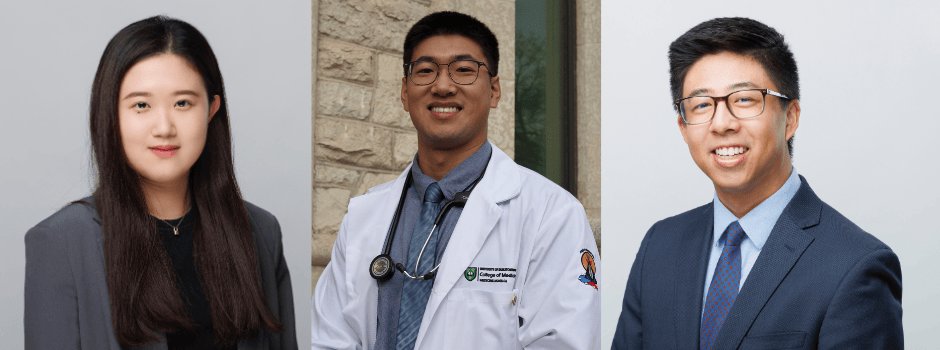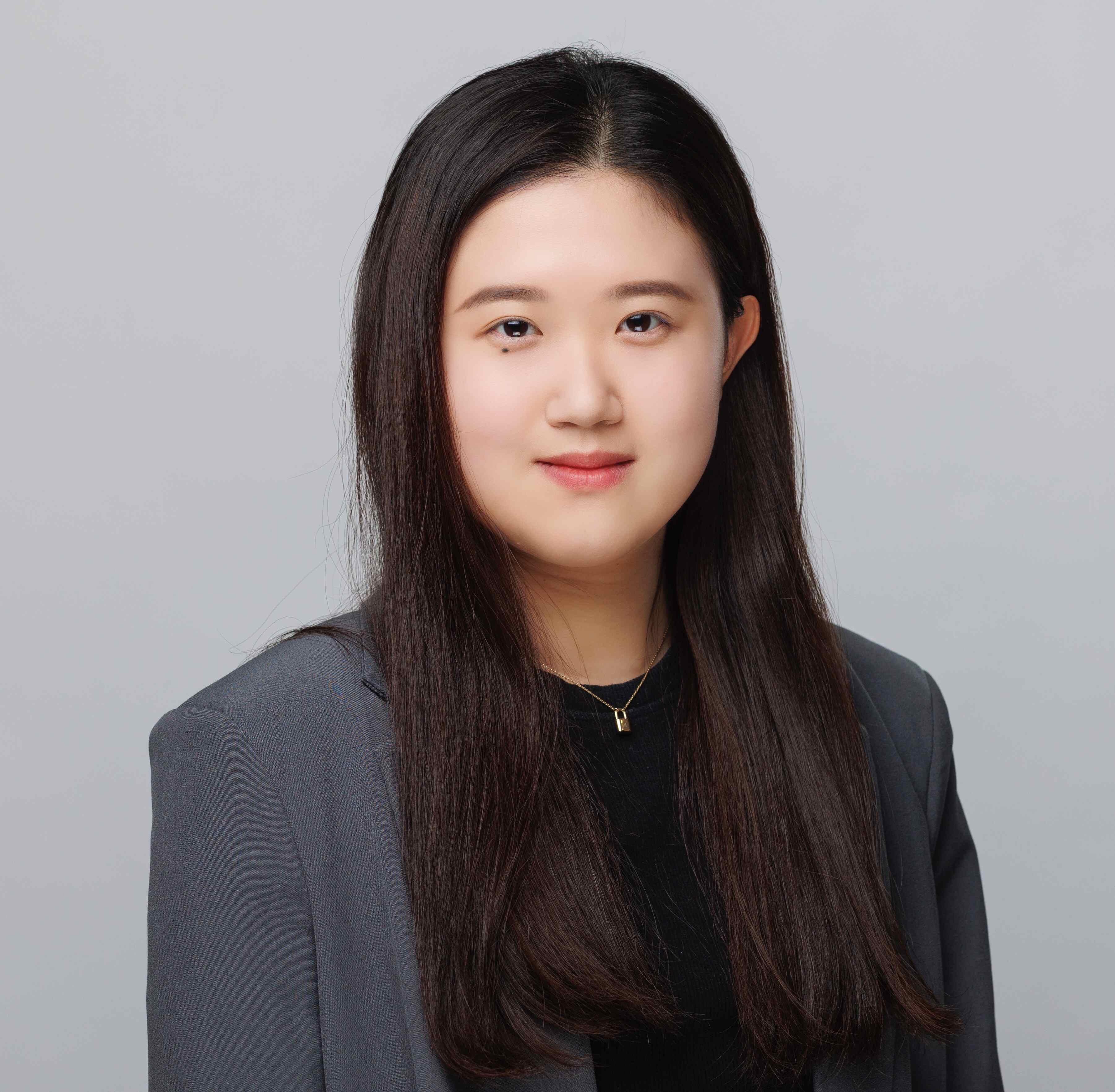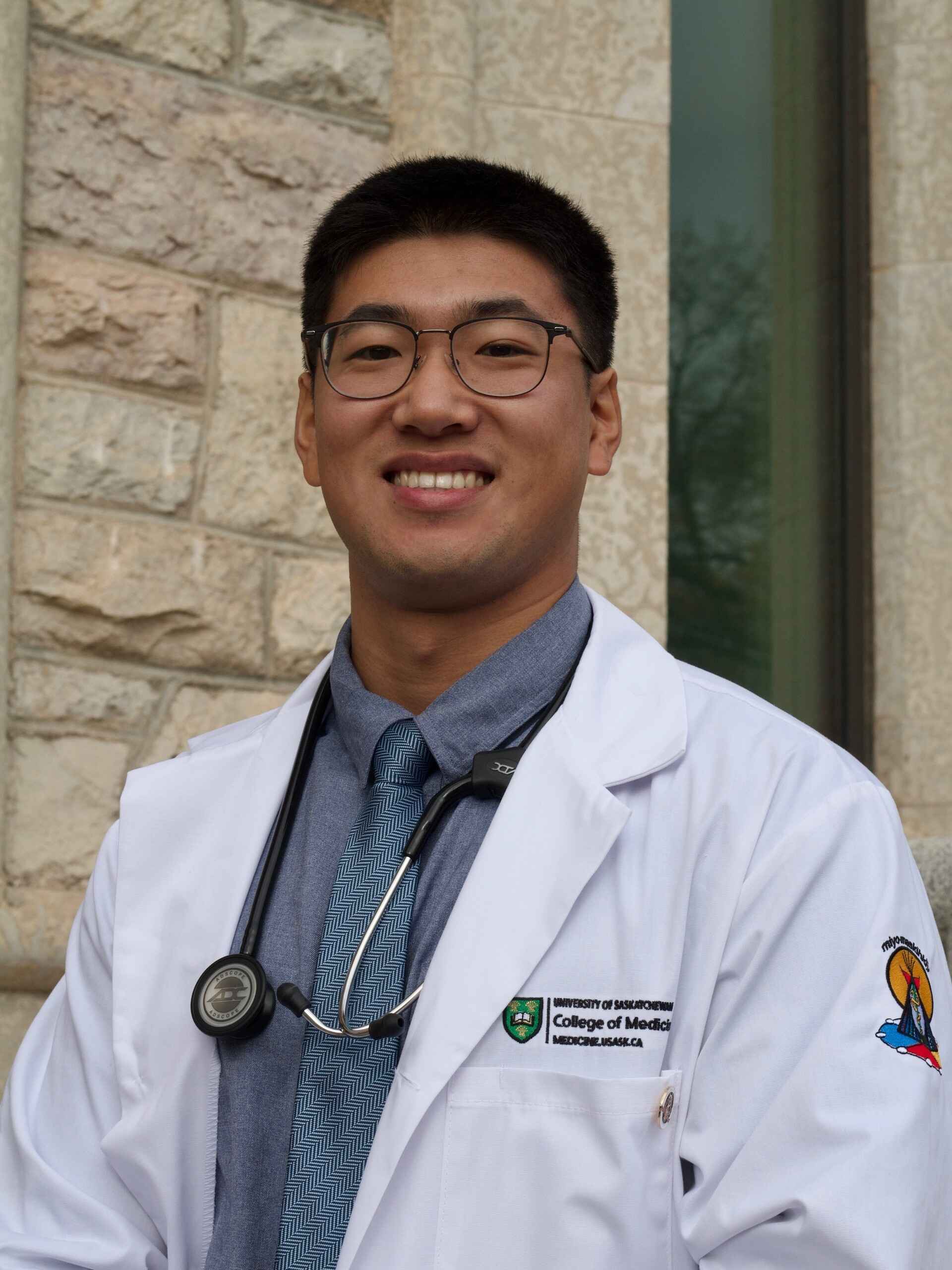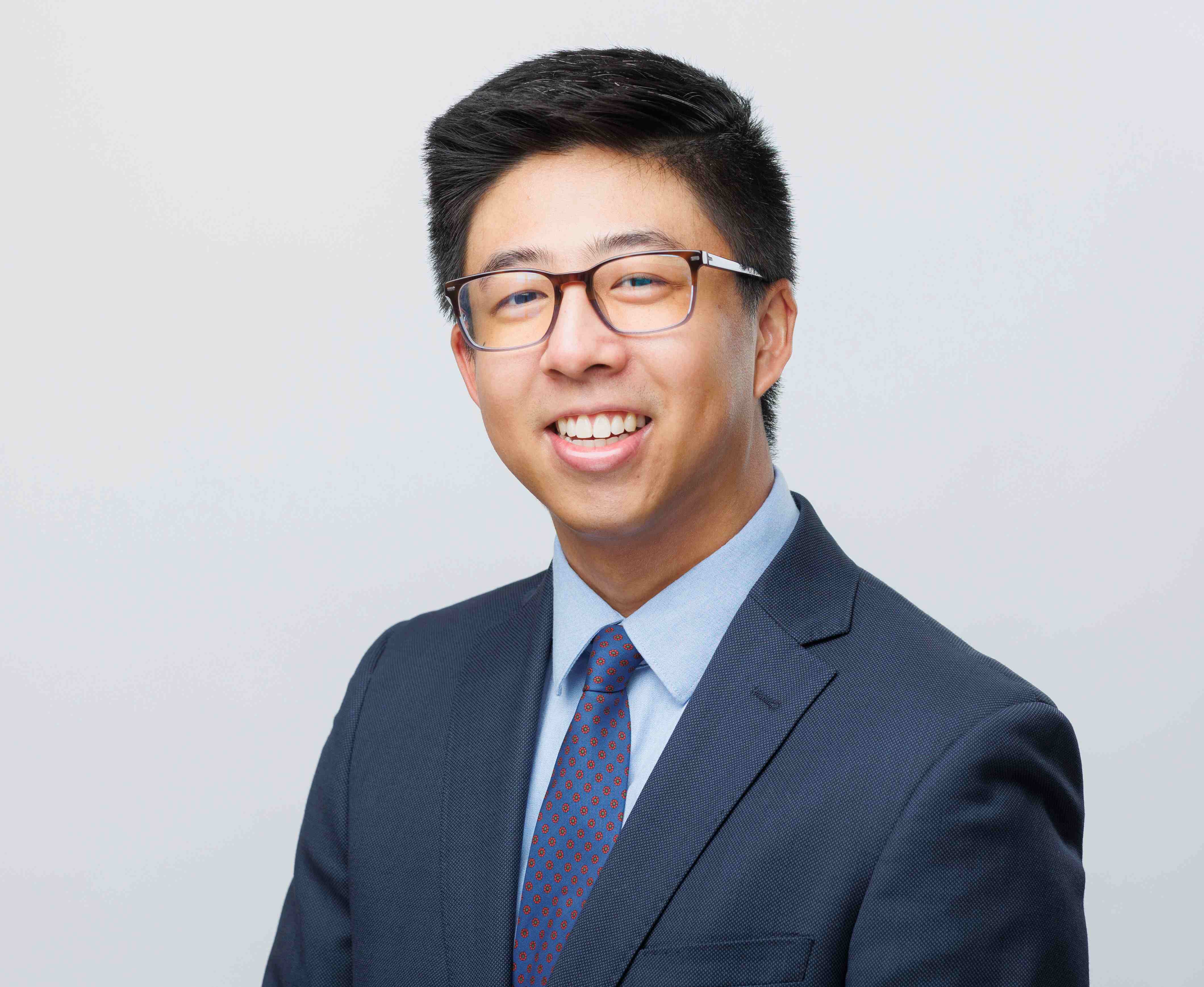
Celebrating Diversity in Medicine: Asian Heritage Month
In honour of Asian Heritage Month, three medical students speak about their journey into medicine and what diversity in medicine means to them.
By Wren MynhardtAsian Heritage Month at the University of Saskatchewan (USask) honours the legacy and contributions of members of the Asian communities that span East Asia, South East Asia, South Asia, Western Asia and Central Asia. It is a time to listen to and learn about these broad and diverse communities that span across our campus, province, and beyond.
We interviewed three medical students — Abby Jia, Wilson Li, and Thomas Lowe — to share their experiences and insights on the importance of diversity in medicine.
Abby Jia (she/her)

Abby Jia (she/her) is a third-year student in the MD program at the College of Medicine. Jia grew up in China and moved to Canada with her family when she was in middle school. Before studying medicine, she completed her undergraduate degree in physiology at McGill University. Most of Jia’s free time is spent on medical research. She has a particular interest in oncology and has worked on various oncology projects over the years. Otherwise, Jia enjoys cooking, especially when she can try out different recipes and experiment with new ingredients. Her additional hobbies include playing badminton and going on walks with her dog.
Jia credits her longstanding, childhood interest in biology and anatomy as one of the reasons she decided to study medicine. However, a bigger inspiration came later in life. By the time Jia started high school, she was regularly volunteering in many places including a long-term care centre.
Jia shared, “I helped organize group activities for patients and got to know their stories. At the time, one of the family physicians that works there was also an Asian female. I was very inspired by the way she treated her patients and how patient and respectful she was with them. That experience made me decide that I wanted to study medicine, work in the health care field and be a part of their care.”
Considering her medical journey so far, Jia told us her best experience “was when I was on my acute care surgery rotation in my third year. I really appreciated being able to interact with patients and see different acute surgery cases.” Jia also credited the clear expectations from staff and the handbook she received from orientation as helpful when preparing for the rotation. Reflecting more on this time, Jia added, “I felt like I fit well into the flow of things and was a useful addition to the team.”
Jia has a very clear goal for what she’d like to achieve in medicine one day. She told us, “I want to pursue general surgery and eventually become a surgical oncologist. In my undergrad, I took a course in cancer physiology, and I found it very intriguing. There’s so many different types and subtypes of cancer and so many factors involved in oncogenesis. Since then, I started to become more interested in oncology. And since starting medical school, I’ve always really loved being in the operating room. It feels great to be a part of a well-trained team of surgeons, anaesthesiologists and nurses, and to work towards a common goal.”
Looking at diversity in medicine, Jia was asked what it means to her. She answered, “To me, diversity in medicine means inclusion and representation of health-care professionals from all backgrounds, identities and perspectives to better serve our diverse patient population. This begins with candidate selection for training programs all the way until everyday patient care.”
While in the MD program, Jia became involved with an equity, diversity and inclusion (EDI) work team at the College of Medicine. She told us, “to better hear student voices, we started organizing annual EDI student roundtables in collaboration with the Division of Social Accountability. And that’s when I realized that inclusion of diversity can be seen through such small things like including different skin colours in dermatology lecture slides, allowing religious holiday leaves and bringing mentors from different backgrounds into medical education.”
Jia’s final reflection on diversity in medicine at USask is optimistic: “the College of Medicine has come a long way in our journey of diversity and inclusion. Continuing to listen to student voices will be key for improving their education experience and setting them up with adequate support for future career success.”
Wilson Li (he/him)

Wilson Li (he/him) is a second-year medical student at the College of Medicine. Born and raised in Saskatoon, Li first completed an undergraduate degree in biomedical neuroscience at the University of Saskatchewan (USask) before entering the MD program. When he’s not studying, Li spends his time running, playing soccer and practicing Brazilian Jiu-Jitsu. He also enjoys listening to music, and is proficient in voice and piano.
When asked about how he got into medicine, Li shared, “as far back as I can remember, the questions ‘why do we suffer,’ and ‘what can we do about it’ were always on my mind. I remember picking up a real human brain in a neuroanatomy lab for the first time. As I held it in my hands, I wondered what life this mind led. What made them smile, be scared, caused pain or heartbreak and what made them feel fulfilled?” While Li had a love for critical thinking and science, it was these types of questions that encouraged him to pursue a career in health care. Li added, “my purpose in medicine is to understand the causes of suffering and approach patient care in a caring and compassionate way.”
Li has had many moments in medicine that stand out. His favourite moment from this past year was when he, as Wellness Representative, traveled to attend the Canadian Federation of Medical Students (CFMS) conference in Moncton, New Brunswick. The CFMS conference brings medical students from all over Canada to discuss issues and developments in the health care field and medical education.
Reflecting on the conference, Li remarked that “being there reminded me so much of my friends and colleagues back at USask who are a family to me. Going to the conference really made me feel lucky to be around so many incredible people who live parallel lives to us.” When considering the impact of studying medicine, Li further said, “we’re all in this not only nationwide but as part of a global project of trying to improve people’s health.”
Thinking ahead to the future, Li is excited about the possibility of pursuing psychiatry: “psychiatry approaches the very fabric of our existence. To give ease and help alleviate some of the chaos that ensues in peoples’ minds would be a huge privilege. I’m interested in getting to know the patient not just for their physical health, but how their mental health is affecting their daily life, relationships, and sense of meaning.”
For the last question in our interview, which was about the meaning of diversity, Li shared, “I think it means being able to appreciate that we all come from different roots. Different cultures demonstrate there are a million ways to approach the same problem.”
Reflecting further on the mixing and sharing of cultures, Li told us how he shares his own “through traditions and food. I had classmates come over to try the food my mom had cooked. My mom is an amazing chef, but by sharing I also wanted others to appreciate my culture and upbringing. I have fond memories of making dumplings for Chinese New Year with my family and visiting with them. It was valuable bonding time with my parents and siblings, and we created a lot of special memories. Everybody has their own unique way of relating to the world.”
For his parting words on his experience in the MD program, Li said, “when I reflect, it honestly doesn’t feel real to have such a strong and connected community. I’ve never experienced anything like this in my life. Meeting some of the most amazing and beautiful minds and incredible human beings and walking this path with them is amazing. It’s such a beautiful journey that we get to be on. Every day I live with a lot of gratitude.”
Thomas Lowe (he/him)

Thomas Lowe (he/him) is a College of Medicine student in his final year of the MD program at the Regina campus. Not only is his family there, but he greatly enjoys working with the community he grew up in. Prior to medical school, he achieved an undergraduate honours degree in physiology and pharmacology at USask. As a previous competitive tennis and badminton player, Lowe continues to enjoy racket sports recreationally with his brother, parents, and friends.
Sitting down for the interview, Lowe shared what drew him to medicine, saying “there are two main things. First, my mom is a psychiatric nurse, and it was always nice to hear how she impacted patients not just through clinical care, but also through listening. Second, I used to volunteer at St. Paul’s Hospital in Saskatoon during my undergrad in the haemodialysis unit, supporting patients undergoing dialysis. Hearing their stories taught me that medicine is about human connections.”
During his volunteering, Lowe found it rewarding to get to know each person. He credits being exposed to health care at a young age and having this interest reaffirmed through his volunteering as the motivation to pursue medicine.
Thinking about his best experience during his medical journey, Lowe admitted that “it’s tough to pinpoint one. I’d say an experience that really inspired me was my internal medicine rotation in Regina during my third year. I enjoyed it because Regina has a good team of internal medicine residents and staff. Internal medicine also has very sick patients, so it creates an environment of collaboration to bring specialities and allied health together. The approach to care is quite holistic.” After graduating, Lowe will be going to the University of Calgary for an internal medicine residency, telling us “my experiences and mentors in Regina helped me figure out that internal medicine was for me.”
When asked about what he wants to do in medicine, Lowe said that he has “two big overarching goals. I really enjoy teaching and working with other medical students and residents and would like to keep learning throughout my career. I am also a curious person and hope to continue being involved in research to explore new ideas.” Examples of the research Lowe has taken part in include working in the USask Neuroscience Research Cluster on projects relating to epilepsy. Lowe is a member of the USask Cardiovascular Research Group. His projects focus on assessing the risk of complications like arrhythmias and shock following a heart attack.
Considering what diversity in medicine means to him, Lowe answered, “what it means to me is that we have a diverse population of patients, and we need health-care teams that reflect the diversity of the patients we serve. Diversity in care teams really encourages people to learn from and utilize the cultural beliefs and experiences of others.”
Lowe went on to stress, “diversity is especially important in medicine because we work with people from around the world from every culture, religion and background. It’s good to keep learning about different health care perspectives so practitioners can put that at the forefront of patient care.”
